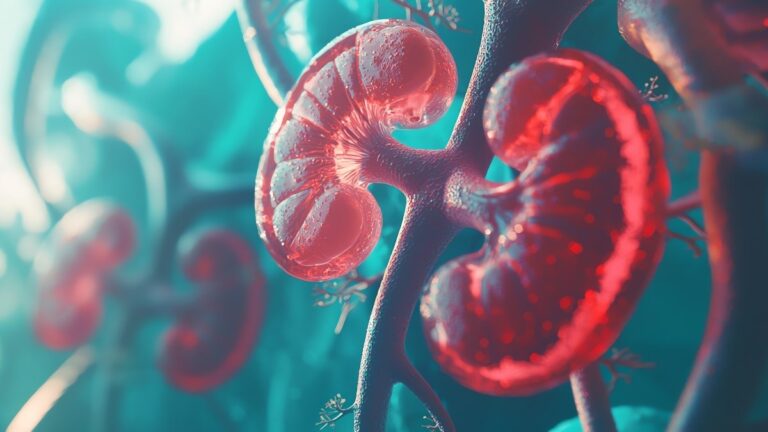“It’s Just Old Age”: 5 Subtle Signs Your Body Is in Silent Failure (And It’s Not What You Think)
Nearly 800,000 Americans die or suffer permanent disability each year from diagnostic errors—and older adults bear the brunt of these mistakes. If you’re experiencing persistent symptoms but hearing “it’s just old age,” you’re not alone.
Countless seniors lose independence while doctors dismiss their concerns as inevitable aging. The truth? Many symptoms misdiagnosed as aging are actually treatable conditions causing silent health failure in your body right now.
This article reveals five critical warning signs that signal serious medical problems, not normal aging. You’ll learn exactly when to push for more testing and discover life-saving actions you can take today to protect your health.
5 Warning Signs Doctors Dismiss as “Just Old Age” (But Aren’t)
Sign 1: Persistent Fatigue
(Click to Learn Why)Potential Causes:
- Heart Failure: The heart can’t pump enough blood, starving muscles of oxygen. Affects 25% of adults over 75.
- Hypothyroidism: An underactive thyroid. Can be misdiagnosed as dementia.
Tests to Request: TSH, eGFR, echocardiogram.
Sign 2: Unexplained Muscle Pain
(Click to Learn Why)Potential Causes:
- Polymyalgia Rheumatica (PMR): Sudden, severe pain in shoulders and hips, often appearing overnight.
- Vitamin B12 Deficiency: Causes muscle weakness, numbness, and balance issues often mistaken for normal aging.
Red Flags: Symmetrical pain, severe morning stiffness.
Sign 3: Leg Swelling or Urination Changes
(Click to Learn Why)Potential Causes:
- Chronic Kidney Disease (CKD): A “silent disease.” 90% of people don’t know they have it. Look for foamy or dark urine.
- Heart Failure: A weak heart causes fluid to back up, leading to leg swelling (edema).
Key Fact: Not just “poor circulation.”
Sign 4: Cognitive Changes & Mental Fog
(Click to Learn Why)Potential Causes:
- Hypothyroidism: Can directly mimic the cognitive decline of dementia.
- Urinary Tract Infection (UTI): Often presents as sudden confusion in seniors, not pain.
- Vitamin B12 Deficiency: Causes gradual neurological issues.
Key Fact: Not all memory loss is dementia.
Sign 5: Breathlessness with Activity
(Click to Learn Why)Potential Causes:
- Heart Failure: Shortness of breath that worsens when lying down.
- Atrial Fibrillation (AFib): An irregular heartbeat. 1 in 3 people don’t know they have it.
- COPD: Often misdiagnosed in older adults.
Key Fact: More than just “being out of shape.”
Your mom says she’s tired all the time. Your dad can’t catch his breath walking to the mailbox. The doctor shrugs and says, “Well, they’re getting older.”
But here’s what nobody’s telling you: some of the most serious health problems in older adults get missed because everyone—doctors included—blames age instead of looking for the real cause.
This article will show you five warning signs that seem like normal aging but point to treatable conditions. You’ll learn what to watch for, which tests to ask for, and how to push back when a doctor dismisses your concerns.
Sign 1 – Persistent Fatigue That Doesn’t Improve with Rest

Your grandfather used to work in his garden every morning. Now he can barely make it through breakfast without needing a nap. When you mention it to his doctor, she says older people just need more rest.
That’s not always true.
Heart failure affects 25% of adults over 75. It causes overwhelming exhaustion because the heart can’t pump blood effectively. Your muscles and tissues don’t get enough oxygen, so everything feels harder. This isn’t the “I had a long day” tired. It’s the “I can’t lift my arms to brush my hair” exhausted.
And heart failure is the leading cause of hospitalization in people over 75. That’s not a coincidence.
But heart problems aren’t the only culprit. Hypothyroidism—when your thyroid gland slows down—affects up to 1 in 4 nursing home patients. Many of them never get diagnosed. The thyroid controls your body’s energy production. When it stops working right, you feel like someone unplugged your battery.
Here’s the scary part: hypothyroidism can look exactly like dementia. A person becomes confused and forgetful, and everyone assumes it’s Alzheimer’s. But treat the thyroid, and their mind clears up.
Normal aging fatigue gets better with rest. You sleep well, wake up refreshed, and have enough energy for your daily activities. Disease-related exhaustion doesn’t improve. You sleep for ten hours and still feel wiped out. Simple tasks like getting dressed leave you breathless.
If you or someone you love feels this way, ask your doctor for three specific tests:
- TSH test – checks thyroid function
- eGFR test – measures kidney function
- Echocardiogram – looks at heart pumping strength
Don’t accept “you’re just getting older” as an answer. These conditions are treatable. But only if someone looks for them.
Sign 2 – Unexplained Muscle and Joint Pain

Margaret woke up one Tuesday morning and couldn’t move her shoulders. The pain was so bad she couldn’t lift her arms to put on a shirt. Her husband had to help her get dressed.
Her doctor said it was arthritis. Take some ibuprofen and rest.
Three months later, Margaret could barely walk. Turns out she had polymyalgia rheumatica, or PMR. It’s a condition that causes sudden, severe pain in both shoulders and hips in people over 50.
PMR symptoms often appear overnight. You go to bed feeling fine and wake up in agony. The pain is usually bilateral—both sides at once. Your shoulders and hips hurt so much that getting out of bed becomes a major task.
Here’s the good news: PMR is highly treatable with glucocorticoids. Most people feel relief within days of starting treatment. But Margaret suffered for months because her doctor assumed it was “just arthritis from aging.”
Hypothyroidism can also show up as muscle aches, especially in your large muscle groups like thighs and upper arms. The pain feels deep and constant. Some people describe it as feeling like they ran a marathon when they barely walked around the block.
Watch for these red flags:
- Pain on both sides of your body at the same time
- Severe morning stiffness that lasts more than an hour
- Pain that appeared suddenly, not gradually
- Muscle weakness that’s getting worse
If you have these symptoms, don’t wait. Insist on seeing a rheumatologist. Ask for tests to check thyroid function and vitamin B12 levels.
The difference between “just arthritis” and polymyalgia rheumatica is the difference between months of suffering and quick relief. But you have to speak up.
Sign 3 – Changes in Urination or Leg Swelling

Kidney disease is called a “silent disease” for a reason. Your kidneys can function at only 20-30% of their normal capacity before you notice anything wrong.
Think about that. Three-quarters of your kidney function can disappear before you feel sick.
But your body sends signals if you know what to look for. You start waking up multiple times every night to pee. Your urine looks foamy, like someone poured soap in the toilet. Or it’s darker than usual, more like tea than pale yellow.
Your legs and ankles swell up by the end of the day. You press your finger into your shin, and the dent stays there for a few seconds. That’s called pitting edema, and it means fluid is building up where it shouldn’t be.
Some people develop persistent itching all over their body. The skin feels dry no matter how much lotion they use. That’s because damaged kidneys can’t filter out toxins properly, and those toxins build up under your skin.
Stage 3 kidney disease—when your eGFR drops to 30-59—affects many seniors. At this stage, you need medical care to slow the damage. But people often don’t know they’re sick until they hit Stage 4 or 5.
Medicare spent $77 billion on kidney disease patients in 2021. Most of that money went to treating late-stage disease that could have been managed better with early detection.
What You Can Do Today: Take Charge of Your Health
Track Your Health
- What: Note every symptom, no matter how small.
- When: Record onset, duration, and frequency.
- Severity: Describe how it affects daily life.
- Patterns: Look for triggers or improvements.
This provides valuable data for your doctor!
Be Proactive
- Thyroid: TSH (Thyroid Stimulating Hormone)
- Kidney: eGFR (estimated Glomerular Filtration Rate)
- Heart: Echocardiogram (if heart issues suspected)
- Nutrients: Vitamin B12 and Vitamin D levels
Don’t be afraid to ask for comprehensive screening!
Support at Appointments
- Family/Friend: Bring someone you trust.
- Listen & Remember: They can help recall details and ask questions.
- Take Notes: Crucial for remembering instructions and diagnoses.
- Emotional Support: Helps when feeling overwhelmed.
A second set of ears makes a big difference!
When You’re Dismissed
- Trust Your Gut: If something feels off, it probably is.
- Different Perspective: Another doctor might see what was missed.
- Specialists: Don’t hesitate to consult a specialist.
- Your Right: You have the right to multiple opinions for your health.
Your health is worth advocating for.
Your Health Numbers
- Kidney Function: Understand your eGFR.
- Thyroid Levels: Know your TSH range.
- Blood Pressure: Keep track of your readings.
- Cholesterol: Be aware of your LDL/HDL.
- Blood Sugar: Especially important if pre-diabetic.
Knowledge is power for proactive care.
Sign 4 – Cognitive Changes and Mental Fog

Janet’s family was devastated. The doctor said she had dementia. She was only 68 years old.
Her daughter noticed Janet had been forgetting things for about six months. She repeated herself in conversations. She got confused about what day it was. The family assumed the worst.
But Janet’s daughter insisted on more tests. One of them was a thyroid panel.
Turns out, Janet didn’t have dementia. She had severe hypothyroidism. After three months on thyroid medication, her memory came back. Her confusion cleared up. She was herself again.
Hypothyroidism can cause cognitive decline that looks exactly like dementia. That’s why thyroid testing is crucial when evaluating memory problems in older adults.
Here’s the problem: getting a dementia diagnosis takes 2.7 years on average. For early-onset dementia, it takes 4.1 years. That’s years of assuming someone has an incurable disease when they might have something fixable.
Urinary tract infections are another culprit. In younger people, UTIs cause burning and urgency when you pee. In older adults, UTIs often show up as sudden confusion. One day the person is fine. The next day they don’t know where they are or what year it is.
I’ve seen families rush their parents to the emergency room thinking they’ve had a stroke. Turns out it was a UTI. A few days of antibiotics, and the confusion disappears.
Vitamin B12 deficiency also causes neurological symptoms that develop gradually. Memory problems. Difficulty concentrating. Mood changes. People attribute these to normal aging, but they’re caused by a vitamin deficiency that’s easy to fix.
Not all memory problems are dementia or Alzheimer’s. Before accepting that diagnosis, make sure your doctor has tested:
- Thyroid function (TSH and T4)
- Vitamin B12 levels
- Urinalysis to rule out infection
- Comprehensive metabolic panel
If your loved one suddenly becomes confused, think UTI first. If they’ve been slowly declining mentally, check thyroid and B12.
Don’t assume dementia until you’ve ruled out everything else. The brain fog might be treatable.
Sign 5 – Breathlessness and Chest Discomfort with Activity

Your father used to walk a mile every morning. Now he gets winded walking from the car to the grocery store. He tells himself he’s just out of shape.
But breathlessness isn’t always about fitness.
Heart failure symptoms include shortness of breath during activity or at rest. It gets worse when you lie down flat, so people end up sleeping propped up on pillows. They wake up gasping for air in the middle of the night.
Heart failure incidence doubles with each decade after age 65. By age 80, you have a 20% lifetime risk. That’s one in five people.
But doctors often miss it because they expect heart attack symptoms—crushing chest pain, pain radiating down the arm. Heart failure feels different. You’re just tired and breathless all the time.
COPD is another condition that gets both misdiagnosed and missed in older adults. About 50% of people diagnosed with COPD might actually have something else. And many people with real COPD never get diagnosed at all.
Then there’s atrial fibrillation. It’s an irregular heartbeat that can cause stroke if untreated. One in three people with AFib don’t even know they have it.
Women often have more subtle AFib symptoms than men. Instead of feeling their heart race, they just feel weak and tired. Their breathlessness gets blamed on being out of shape or anxious.
Here’s what to watch for:
- Breathlessness that’s getting worse over weeks or months
- Difficulty breathing when lying flat
- Chest tightness or pressure during activity
- Swelling in legs and ankles
- Persistent cough, especially at night
These aren’t signs of being “out of shape.” They’re signs your heart or lungs need help.
If you’re experiencing breathlessness that limits your daily activities, ask your doctor for a chest X-ray, EKG, and pulmonary function test. Don’t accept “you’re just getting older” when you can’t walk across a room without gasping for air.
The Dangerous Phrase: “It’s Just Old Age”

“It’s just old age.” Four words that keep people sick.
When a doctor says this, they stop looking for the real problem. When a patient accepts it, they stop asking for help. This phrase creates a barrier to proper diagnosis that can last months or years.
Both patients and healthcare providers fall into this trap. Older adults show symptoms differently than younger people. Sometimes they don’t show symptoms at all until a disease is advanced. Healthcare workers see this pattern and start assuming every problem is “because of your age.”
One study found that older adults often get dismissed by their doctors when reporting symptoms. The doctors attribute the symptoms to aging without doing proper testing.
But here’s the truth: pain, exhaustion, breathlessness, and cognitive decline are NOT normal parts of aging. They’re symptoms of conditions that need treatment.
Normal aging means you move a bit slower. You might need reading glasses. You don’t bounce back from illness quite as fast. But you should still have energy for activities you enjoy. You should still be able to think clearly. You should still be comfortable in your body.
There’s a huge difference between normal aging and pathological conditions. One is a natural process. The other is disease that needs medical care.
Self-advocacy is critical. If something feels wrong with your body, speak up. If a doctor dismisses you, ask why they’re not doing tests. If they still won’t help, find another doctor.
You’re not being difficult. You’re being smart.
Why Early Detection Matters

Most of the conditions we’ve talked about are highly treatable when caught early.
Heart failure can be managed with medication that strengthens the heart’s pumping ability. People go from barely being able to walk to resuming normal activities.
Hypothyroidism is treated with a simple daily pill. Within weeks, energy returns and brain fog clears.
Early-stage kidney disease can be slowed or even stopped with diet changes and medication. People keep their kidney function and avoid dialysis.
The difference between early and late detection isn’t just about treatment. It’s about quality of life.
Early treatment means you keep your independence longer. You can still drive, cook your own meals, play with your grandkids. You avoid hospitalizations and emergency room visits.
Late detection often means irreversible damage. Once your kidneys fail completely, you’re on dialysis for life. Once heart failure advances too far, medication can’t help as much.
There’s also a cost factor. Catching conditions early saves money—for you and the healthcare system. Preventive care and early treatment cost a fraction of what emergency care and late-stage treatment cost.
But the real reason early detection matters is simple: it gives you more good years with the people you love.
What You Can Do Today

Start with a symptom diary. Write down what you’re experiencing, when it happens, how severe it is, and any patterns you notice. This helps your doctor see the full picture instead of just a snapshot from one appointment.
Request specific tests. Don’t wait for your doctor to suggest them. Here’s what to ask for if you’re 65 or older:
- Complete blood count – checks for anemia and infection
- Comprehensive metabolic panel – kidney and liver function
- TSH test – thyroid function
- Vitamin B12 and D levels
- Lipid panel – cholesterol and heart disease risk
- Urinalysis – kidney function and infection
- EKG – heart rhythm
- Chest X-ray – if you have breathing problems
Bring a family member or friend to appointments. They can help you remember what the doctor says. They can also speak up if you’re being dismissed.
Get second opinions when you feel dismissed. If one doctor says “it’s just old age,” see someone else. Trust your gut.
Know your baseline numbers. What’s your normal kidney function? What’s your thyroid level when you feel good? When those numbers change, you’ll know something’s wrong.
Annual screenings for people 65 and older should include all the tests listed above, plus:
- Bone density scan for osteoporosis
- Colonoscopy (every 10 years if normal)
- Eye exam for glaucoma and macular degeneration
- Hearing test
Don’t skip these. Early detection only works if you’re actually getting checked.
If your doctor won’t order tests you think you need, ask them to document in your chart why they’re refusing. Sometimes that’s enough to change their mind. If not, you have a record that you tried.
Your health is too important to accept vague answers.
Your Next Steps
These five signs aren’t “just old age.” They’re symptoms of treatable conditions that affect millions of older adults every year.
Persistent fatigue, unexplained muscle pain, changes in urination, cognitive fog, and breathlessness all point to specific medical problems. Early detection saves lives and maintains quality of life.
You know your body better than anyone. If something feels wrong, it probably is. Don’t accept dismissive answers from healthcare providers who blame your age instead of looking for real causes.
Schedule a comprehensive health screening if you’re experiencing any of these symptoms. Print this article and take it to your doctor. Share it with elderly loved ones who may be suffering in silence because they think their symptoms are normal.
Silent health failure in older adults is preventable when we stop accepting “it’s just old age” as a diagnosis. Your health deserves better than a shrug and a dismissal.
Speak up. Get tested. Get treated. You deserve to feel good at any age.
Thanks for reading\! Remember to be your own health advocate and stay proactive. Wishing you well on your health journey\!








